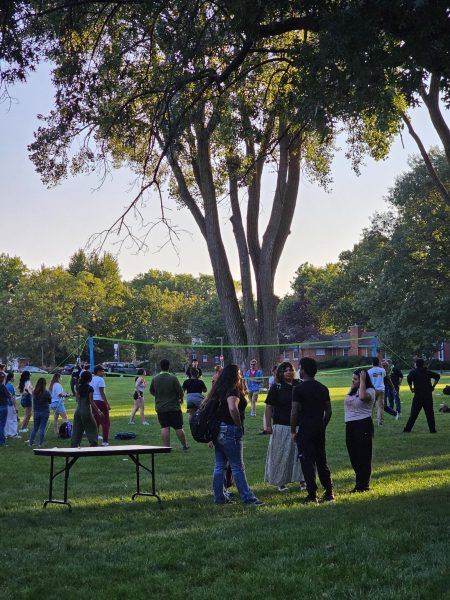COVID aggravates enrollment declines, budget challenges
COVID-19 has aggravated PNW’s enrollment woes – and caused the university to suspend several academic programs.
New data from the Office of Institutional Research shows university core enrollment dropped nearly 8% since last year, to 7,056 students on both campuses. In the last five years, enrollment has declined by nearly 23%, from 9,119 core students in the 2016-17 school year.
“PNW has experienced a persistent decline in enrollment over the past several years,” said Stephen Turner, vice chancellor for Finance and Administration. “That trend was clearly exacerbated this year by the COVID-19 pandemic.”
Enrollment declines create a domino effect within PNW that has caused significant budget cuts and reductions in staff and programs.
Libbie Pelter, faculty senate chair, said the university’s senior leadership has proposed a plan that will meet the budget shortfall without salary reductions, furloughs or cuts to academic programs.
“The majority of changes in the past year have been [program] suspensions that occurred due to a lack of student interest or limited enrollments,” said Kenneth Holford vice chancellor for Academic Affairs. “Suspensions in the past year included the MA English, MS Mathematics, BA Information Systems and AS in Emergency Medical Services.
“Additionally 10 concentrations were suspended at the graduate or undergraduate level, along with two certificate programs,” he said. “The only elimination in the past year that I am aware of is the proposed elimination of the Sociology concentration in the Behavioral Sciences degree in favor of the BA Sociology.”
Program suspensions will not prevent students from completing their studies or graduating, Holford said.
The class cuts and closures largely result from enrollment declines and decreased interest in the programs by students who are enrolled.
“Individual courses, and even whole academic programs, are directly affected by student demand over time,” Holford said. “Significant and lasting enrollment declines in individual courses or concentrations, for example, is an indicator of less internal or external demand for the course or program.”
The university typically responds to the declining demand by offering less popular courses less frequently or temporarily suspending programs. Holford said a suspension could lead to a closure, revision, or reinstatement after a period of time, depending on the conditions.
Enrollment declines also reduce the amount of money generated by tuition and other instructional fees.
“The dollars generated by tuition and other instructional fees are the largest component of our revenue budget,” Turner said. “We are required to maintain a balanced operating budget. Therefore, when revenue declines our expenses must be reduced by a proportional amount. Two thirds of the PNW expense budget goes to salaries, wages and benefits. When enrollment declines, revenue declines. When revenue declines, expenses must be reduced. When significant expense reductions are required over an extended period of time, the unfortunate and unavoidable outcome is fewer university employees.”








